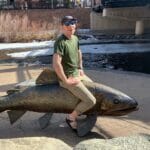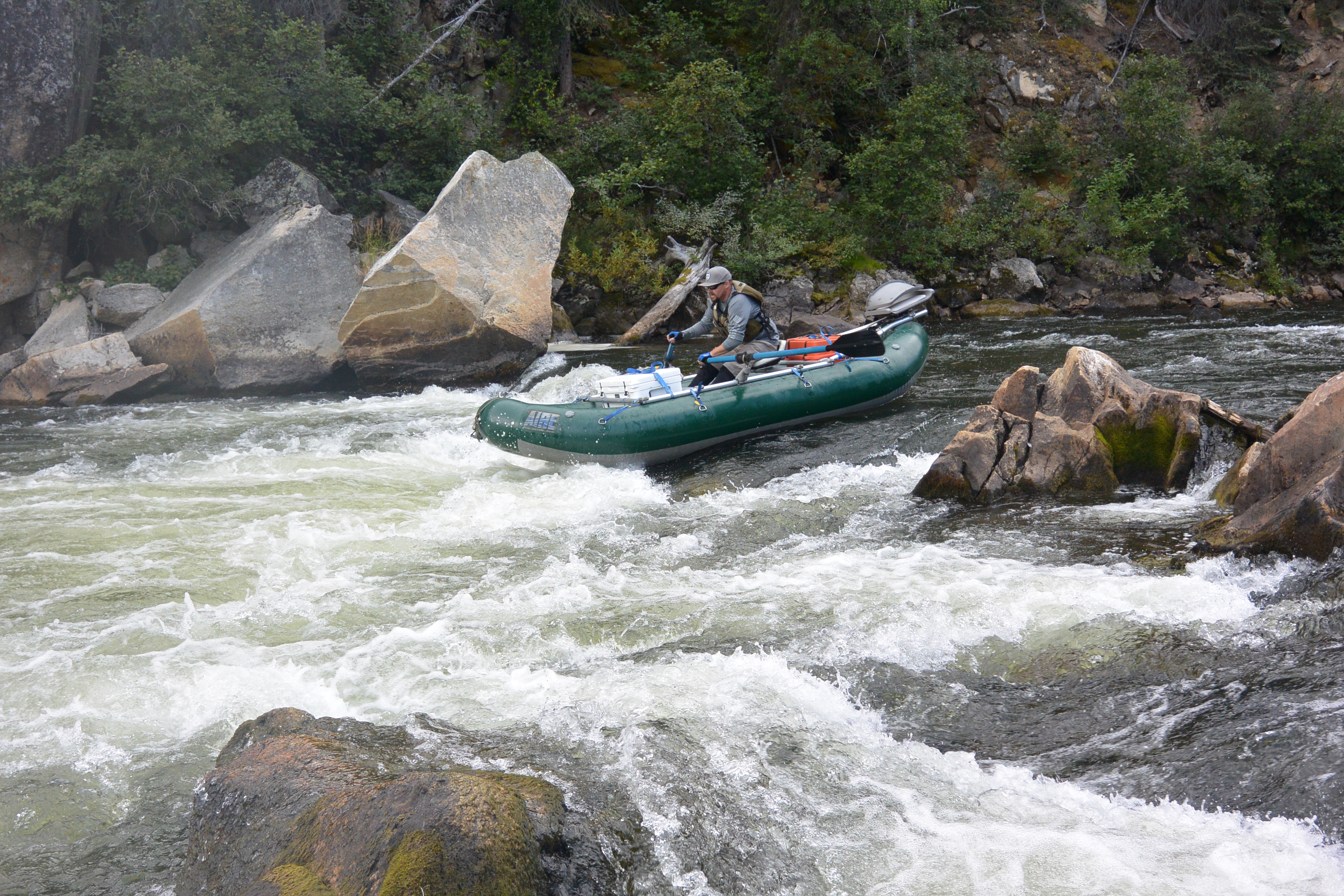Chad turned to his wife Erin,
“If I don’t make it back, I died doing what I love.”
It was well-spoken and sealed with a kiss. The Class III rapids of the canyon are far from the roughest or most consequential white water in the state, though they have proven deadly. As with many things, it’s better to be safe than sorry when drifting for adventure and a sense of freedom in the Alaska backcountry.
It’s an impressive journey tracing the path carved by the gravity-fueled convergence of individual water molecules over millennia in just days at a time. A continuous work of art evolving daily under our rafts and beneath our wading boots, revealing its fresh progress since our last voyage with each sneak peek around the river bend. Every century, every year, every day, a variation of the former, a new mark in time.
Rivers… they captivate us, consume us, inspire us. Pulling us through the week as weekend fishing draws near and keeping us afloat with memories of fish, evening fires and camp coffee.
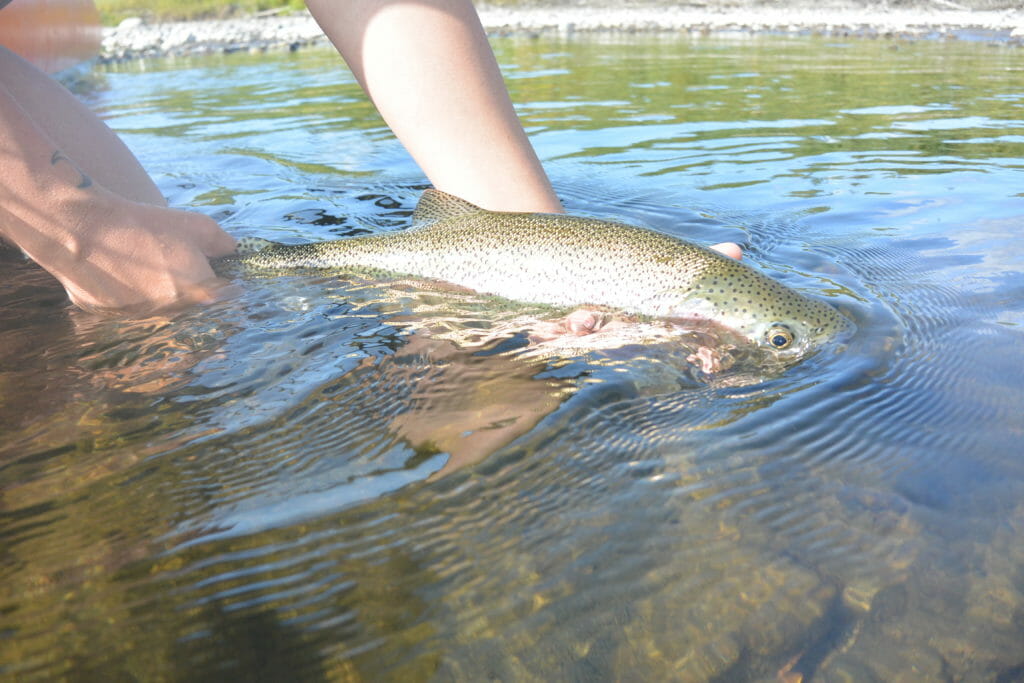
As of late, I’ve had two people passionately express their opinion that every American should enter the lottery to pull a permit for their chance to float one of America’s finest jewels, the Grand Canyon. I haven’t experienced the Grand Canyon, but I’d take the sentiment one step further to say that every American should find time to participate in multi-day float trip on a river wandering public lands of any destination or scale. These are your rivers and that is not to be taken for granted. Explore them, celebrate them. Cherish and advocate for them.
For me, this summer’s journey down the Gulkana started before our rafts caught the saving grace of the current at the outflow of the lake after a friendly race through churning whitecaps. It started before the boats were launched or our gear was even in the rig; before the caravan was on the road headed north.
The dark days of winter (even darker in Alaska) reliably conjure highlight reels and tales of mishaps from the river over beers with friends, from which future plans seamlessly unfold. The packing list starts as an outlet for excitement, featuring the essentials and a bit more (in the end, gravity does the work on a river trip, right?).
Hours are happily spent at the fly-tying vise, waking up early to start streamers before work only to put the finishing wraps on before calling it a night. With each thread wrap I slip further from the heart of Anchorage, the sounds of jets departing and dogs barking fade to the splash of enthusiastic Arctic grayling hammering my wife’s hopper, fiberglass rod erupting as the fish takes to the skies and dives, cheerful giggles mirroring the fish’s every move while the oar blades lap the water with each dip.
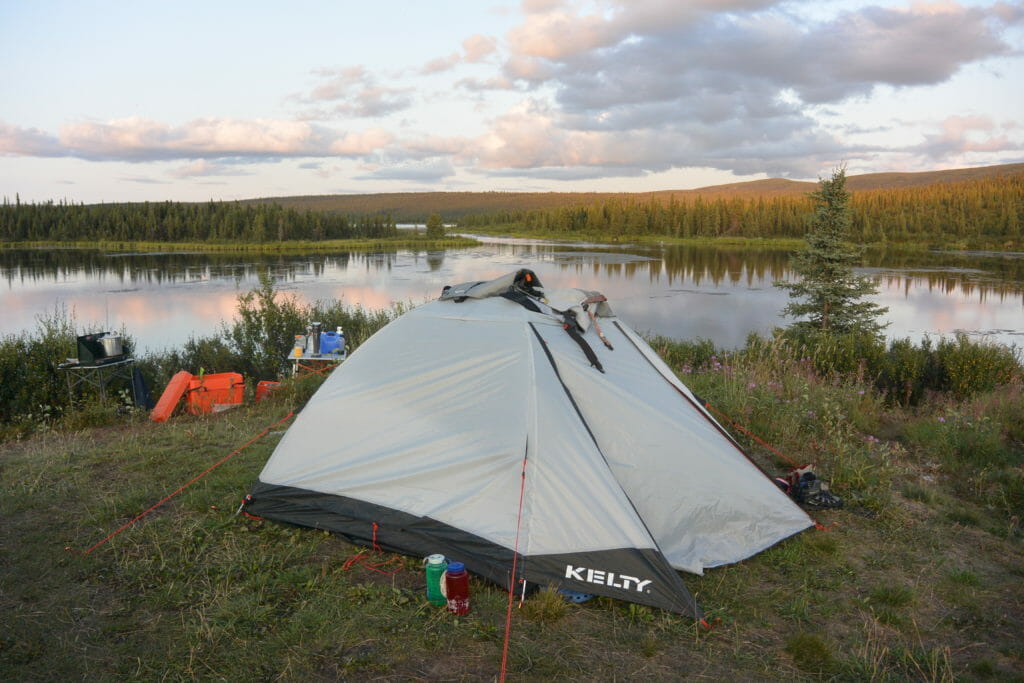
On the river, as a crew, we are in this together, yet we still succeed in finding our own tailored experience. Up earlier than most, I find it impossible to stare at the roof of the tent rather than heed, not just the presumed call of trout, but the remote solitude I may only find once a year that I deeply crave. I may never recall the full extent of my unaccompanied resolves, but I’ll be hard pressed to forget the several line peeling trout I connected with while putting my new switch rod to the test while my wife continued to snooze; different happy places, though I’d hazard she was dreaming of fish.
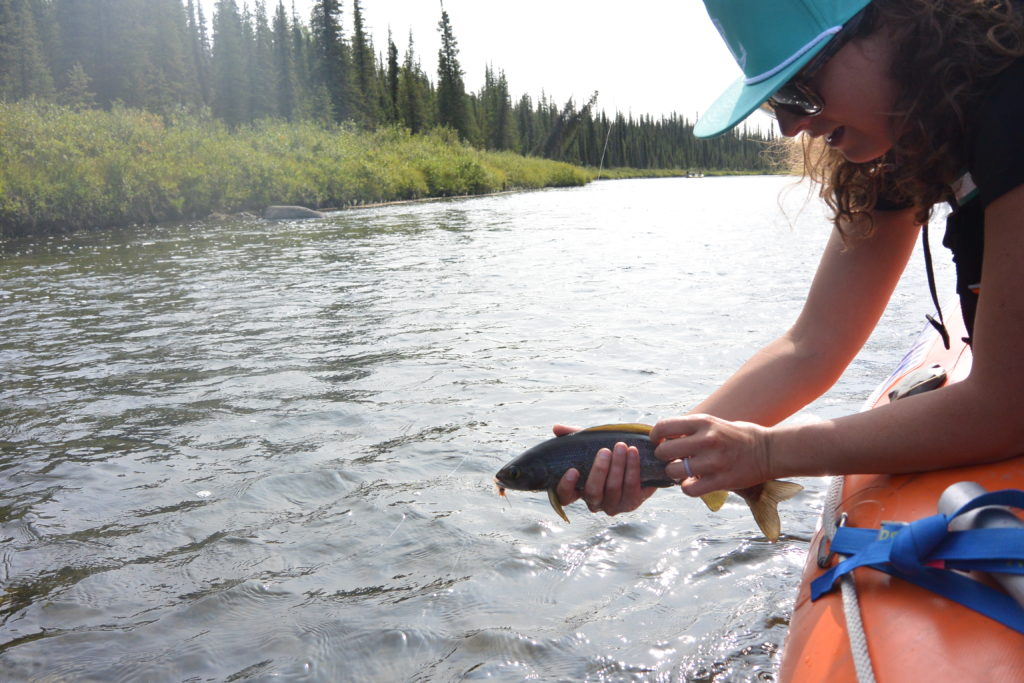
America’s rivers are vital arteries; the fateful juncture of clean water, the foundation of our passion and the basis of life on earth. I struggle to think of more fitting place to enjoy with family and friends.
If you find yourself in this setting (riverside with few obligations more than eating, drinking, enjoying) and you are appreciative to be there, I’d say you’ve found freedom, or at least a sense of freedom that many lionize. This may come as a shock, at least it did to me, but turns out you can have a fulfilling experience on a 5-day float trip without even holding a fly rod in your hand.
Believe me, I’ve witnessed it firsthand, but I guess that simply reinforces the notion that there’s something for everyone to enjoy on America’s wild and scenic rivers. Turn to them for adventure and freedom.
Eric Booton is the sportsmen’s outreach coordinator for TU’s Alaska Program. He lives and works in Anchorage.


